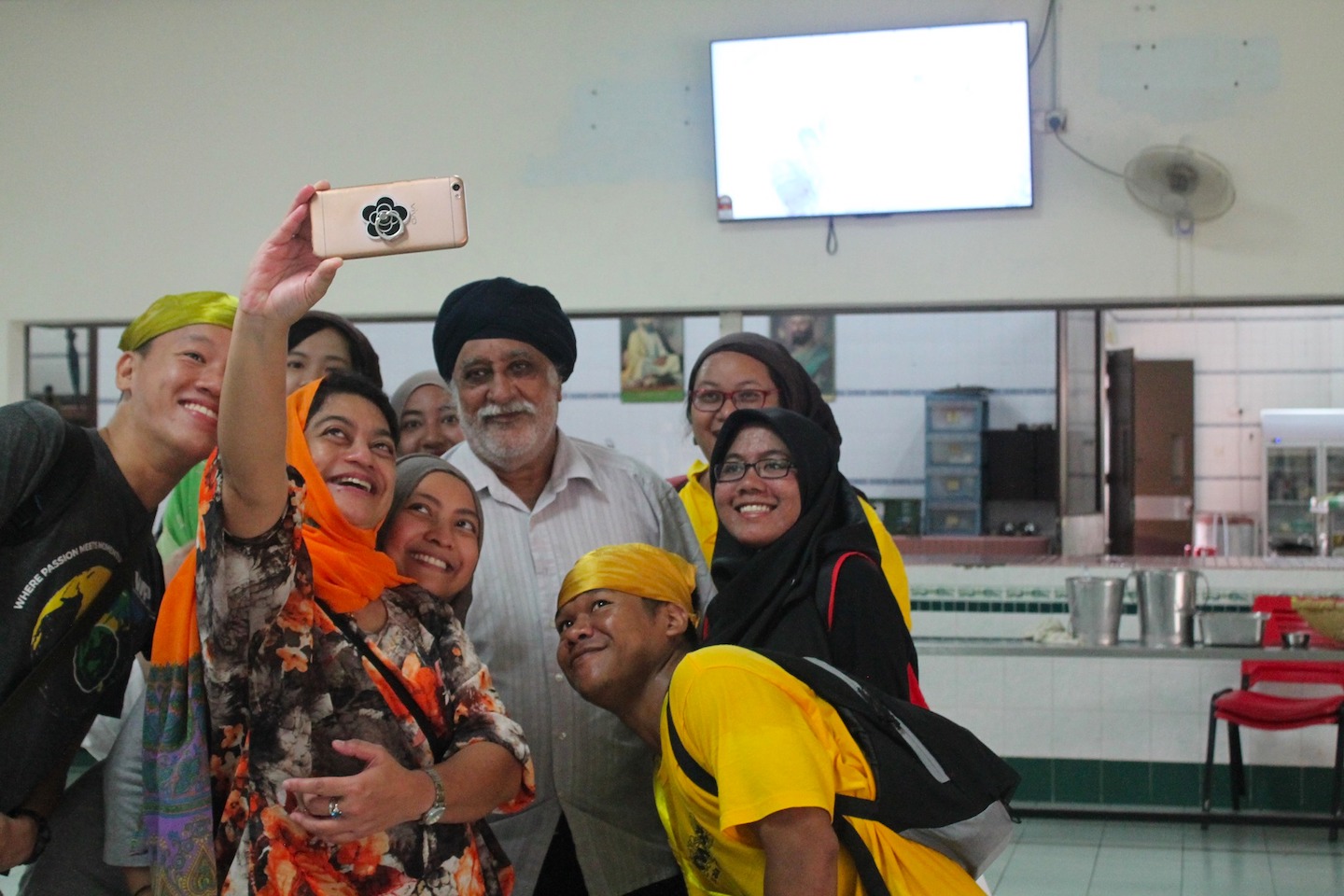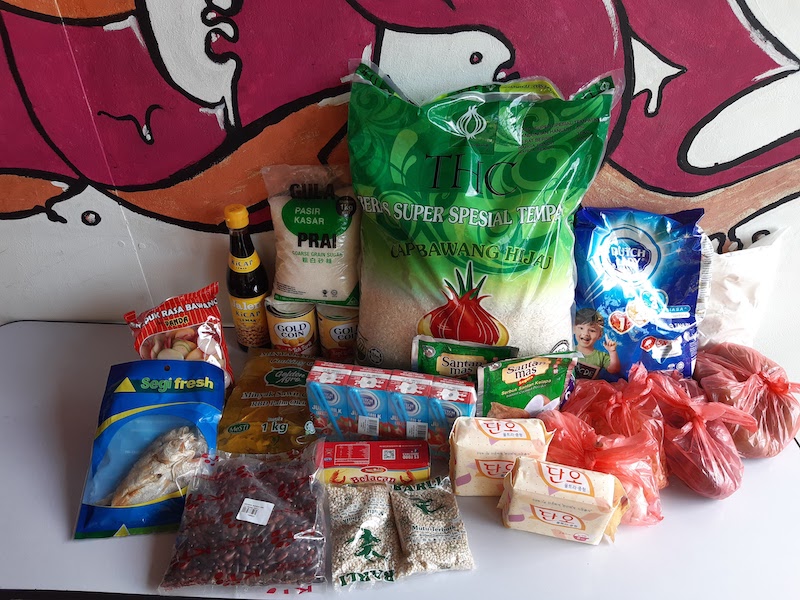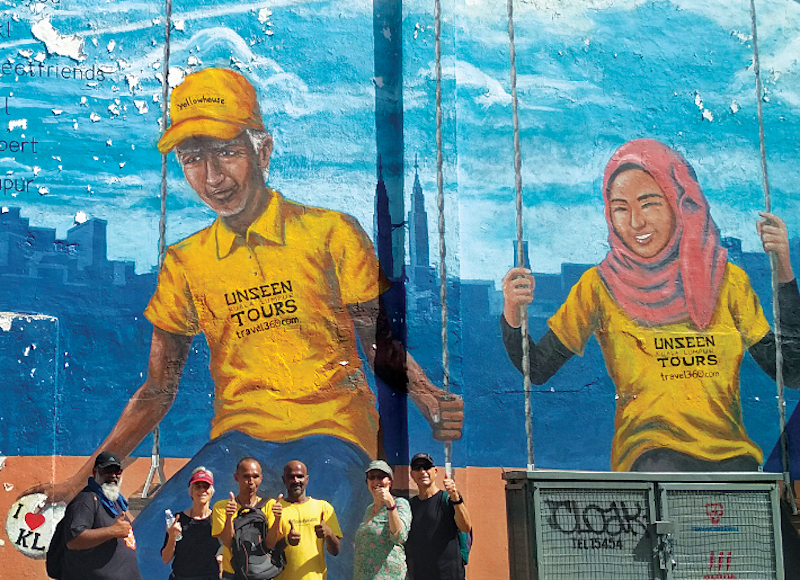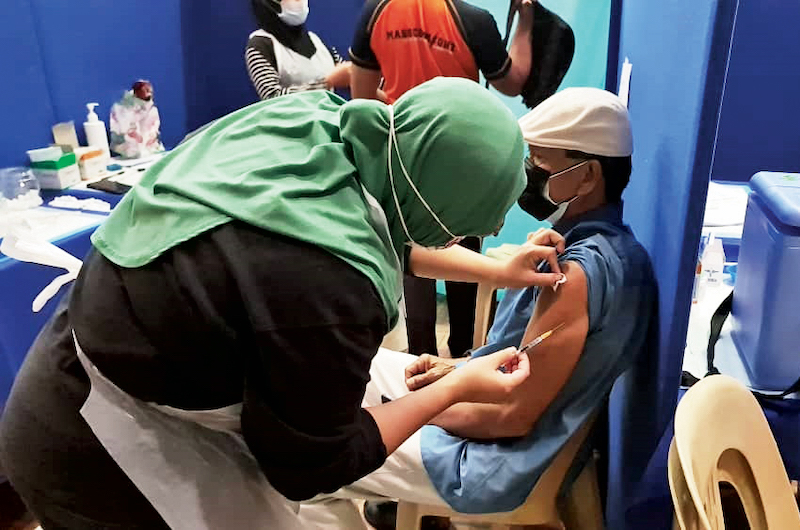
Yellow House KL aims to make a long-term impact on the lives of the people it helps, rather than do one-off projects (All photos: Yellow House KL)
Yellow House Kuala Lumpur is a well-known NGO (non-governmental organisation), especially in Ampang, as it has been instrumental in helping the community there. It all began in 2011, with one woman’s hope to help people. After leaving her job at Malaysiakini, Shyam Priah Marimuthu began My Khatulistiwa.
“When working in the media, you get to meet a lot of people,” she says. “I met many who needed help and many wanting to help, and I realised there was no platform to connect them. I had no idea about opening an NGO at the time, so I opened a corporate social responsibility consulting company, to give corporations a strategy on how to do CSR in a more sustainable way.”
Soon after, Shyam started Yellow House KL, a grassroots NGO to complement My Khatulistiwa, which began with the aim of ending homelessness. It was a cause very close to her heart as, at one point, she was homeless herself. “I was transitioning from one place to another and didn’t have anywhere to go. There was a house that I [was supposed] to move into, but that got delayed. I couldn’t go back to my family and stand there looking defeated. A lot of people are homeless because of pride; you don’t want to be labelled a failure. It’s not just substance abuse that causes someone to be homeless. There are various other reasons,” she explains.
img_20180514_150008.jpg

Yellow House KL aims to make a long-term impact on the lives of the people it helps, rather than do one-off projects. The volunteers cut and wash people’s hair, and even cook food on the streets. “It was not so much about serving the homeless people food; it was more to gain their trust. For the first week or two, they would just look at us. But by the third, they would roll up their sleeves and say, ‘Alright, what needs to be done? Tell us and we’ll help’. And this was what we wanted,” says Shyam. As it got to know the people, Yellow House KL was able to help them more meaningfully and even take steps to find them employment and shelter.
Before the pandemic, Yellow House KL relied a lot on volunteers, especially those who visit from overseas. Shyam mentions that she had hosted up to 700 volunteers before Covid-19 hit. “We don’t just accept any volunteer. They have to go through a strict vetting process because we are working with people of concern — refugees and the homeless. We don’t want people to come and use this as a tourist attraction to take pictures and selfies. We have strict policies and only take those who are qualified, have done something similar in their country, or have studied about it,” she says.
Yellow House KL is also a bricks-and-mortar space. “It is an actual house. It is the headquarters of the organisation and a safe house. It also [functions] like a platform where knowledge and experience are transferred,” adds Shyam. As it often houses its travelling volunteers, one of its early challenges was people assuming that it was a hostel.
20200424_101455.jpg

Operating with an experienced board of trustees, the organisation is transparent about all of its projects. The NGO’s core values include creating equal opportunities for people from all walks of life, being sustainable, practising transparency in all its dealings and being governed by its purpose, which is “to increase the employability of the marginalised community we work with, so they may lead better and sustainable lives”.
Since its inception in 2011, it has undertaken many projects. The First Job Initiative helped homeless men and women get back into the workforce while the Community Connect project — managed by Think City, supported by Citi Foundation and implemented by Yellow House KL — worked on creating a mutually beneficial way for homeless people and local businesses to work together.
Perhaps its most well-known initiative is Unseen Tours KL, “where we trained the street community to be tour associates. We don’t say guide because they’re very much involved in the process of curating the tours, as they know the nooks and corners, the stories, and all that. When you engage someone in something that interests them, they get very passionate about it. It was quite successful,” says Shyam.
There is even a massive mural in Petaling Street that features two of their tour associates. “Every homeless person who knew about Unseen Tours and saw that mural felt so proud. They would say ‘Hey, I know those guys up on the wall’. It was very inspiring for them, like a beacon of hope. They felt like, ‘If they can do it, I can do it too’,” Shyam explains.
Yellow House KL also has projects that involve refugees — for example, the Mantoo (Dumpling) Project for Afghans to sell frozen dumplings; the Poncho Blouse Project, which helps women develop their sewing skills to help sustain their livelihood; and the Freelance Tailors Partnership, which helps refugee men and women find work with local businesses.
screenshot_2019-01-31-13-04-30-105_com.miui_.gallery.jpg

The pandemic has forced it to pivot quite drastically, and because of the strict standard operating procedures (SOPs), some projects have been put on hold. It has now started distributing groceries to those in need. “That’s not the nature of an enterprise at all. For the refugees and homeless people, we try to find a way to uplift their lives. That means helping them generate income to lead a better quality of life,” says Shyam.
“As there are many NGOs, there was a lot of wastage, owing to the duplication of efforts. In April, we created a landing page on our website where you can refer someone in need of aid. Because of the MCO (Movement Control Order), we couldn’t go out and find beneficiaries. So, we sought the help of Malaysians residing in KL and Selangor to be our eyes, and to refer people they knew who needed help.” To date, Yellow House KL has been able to distribute over 6,000 care packages.
It is heartwarming to note that, as volunteers from overseas are unable to come, Shyam has had assistance from some of her usual beneficiaries. When homeless people were being placed in temporary shelters because of the MCO, eight such individuals asked if they could reside in Yellow House KL. After completing a quarantine period, they volunteered to help her pack groceries. “I am eternally grateful to them. It was just at that moment when I really needed help that they came through,” she says, adding that the refugee school Yellow House KL works with, as well as people from the NGO’s surrounding community, have pitched in to help.
As part of the new normal, Shyam has been working tirelessly to feed frontliners in a remote area and in Gombak. And, most recently, she aided the elderly in the Ampang area to get vaccinated. “That was something we also did to help Selangor achieve herd immunity … We got help from our local state assemblyman, Puan Haniza Talha, who gave us a letter so that we could transport the elderly for their vaccinations. We registered about 600 and about 200 first doses have been completed,” she says.
img-20210701-wa0072.jpg

Yellow House KL has also worked tirelessly to revise its projects to accommodate the current SOPs. It has been working with 18 families in Dengkil, offering them vegetable seeds. “Most of them have landed properties, so I gave them vegetable seeds to plant so they could sustain themselves. They each grow different vegetables. By January this year, their yield was more than 10kg a week so now, we have found a wholesaler in Selayang for them to sell their produce to.”
The next step in the organisation’s pivot strategy is to launch an e-commerce platform so that its beneficiaries have a space to sell everything from mantoos to sewn items. Shyam says they hope to include those in their community who need help selling their wares to make a living.
Yellow House KL’s current challenge is covering its operational costs. With donations, and by possibly working with corporate organisations on CSR projects, it hopes to be able to continue aiding those in need. Most importantly, the NGO will continue to uplift lives and make a positive and long-term impact.
This article first appeared on Sept 13, 2021 in The Edge Malaysia.


